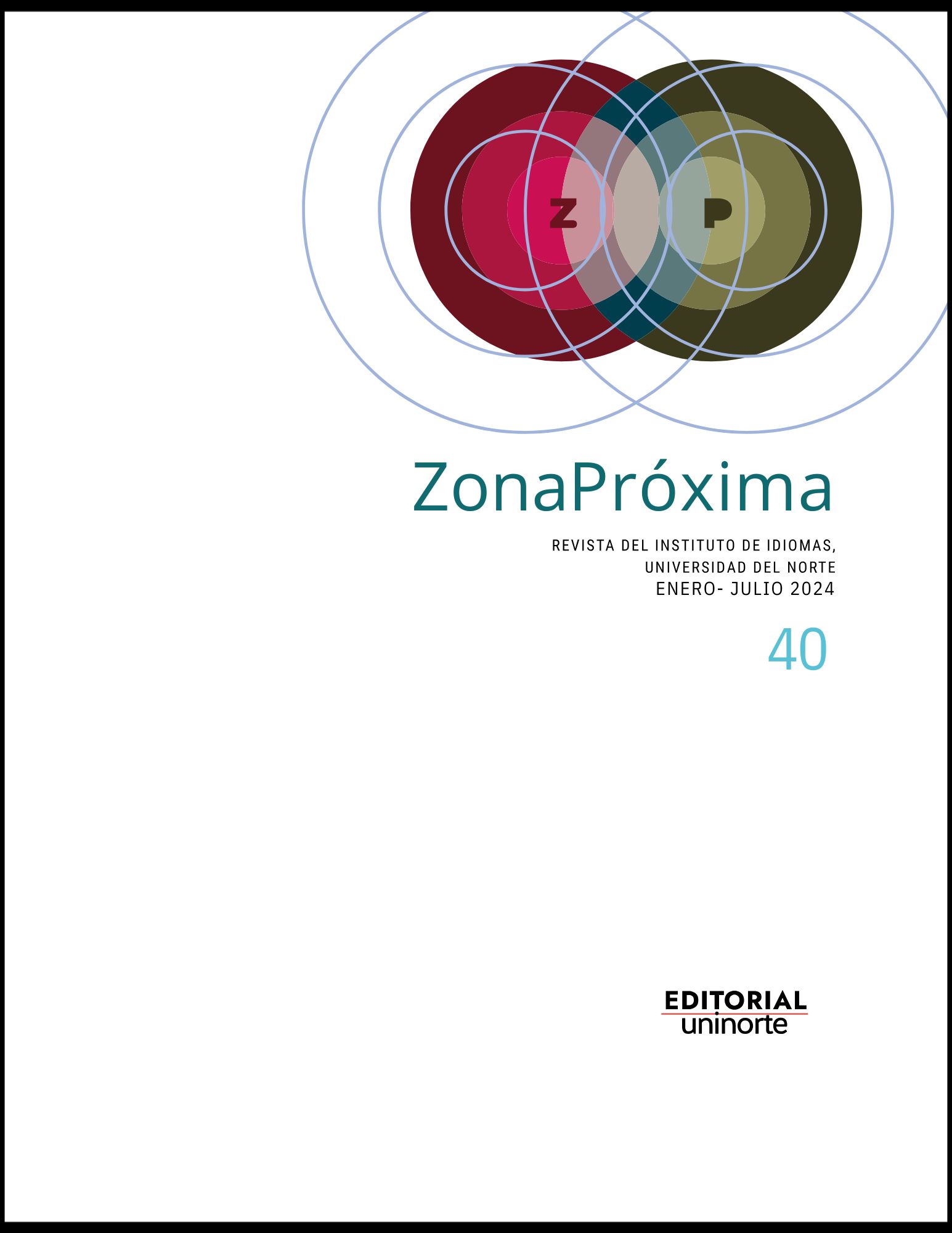Abstract
This article presents the results of an exploratory study focused on investigating the characteristics of the academic-scientific writing in doctoral students. This way of characterizing writing seeks to think with professionals who are pursuing postgraduate courses about alternatives for participation in writing practices and communities that expand their opportunities for interaction and enhance their enunciative identity. Undoubtedly, cultivating the quality of authorship and exhibiting it before the scientific community means striving to let the authorial voice be heard during the concert of voices that have legitimized their presence with canonical approaches and perspectives. The study sample, chosen by convenience, was made up of 74 doctoral students in Education and Society, at La Salle University in Bogotá, Colombia, based who responded to an online survey and later, 9 of them voluntarily participated in the analysis of the results through three focus groups.
References
Adoumieh, N. (2011). Las Habilidades Metacognitivas en el proceso escritural: Investigación y Postgrado, 57–92.
Avello-Martínez, R., y Seisdedo-Losa, A. (2018). El procesamiento estadístico con R en la investigación científica S. Medisur, 15(5), 583–586.
Aitchison, C. y Guerin, C. (2014). Writing Groups for Education and Beyond. Innovations in practice and theory. Oxon, OX: Routledge.
Camps, A., Guasch, O., Milian, M., Ribas, A., y Ribas, T. (2007). El escrito en la oralidad: el texto intentado. 1(11), 231–251.
Carlino, P. (2006). La escritura en la Investigación. Documento de trabajo (U. de S. Andrés (ed.); pp. 0–43).
Carlino, P. (2005). La experiencia de escribir una tesis: contextos que la vuelven más difícil. In Anales del Instituto de lingüística, 24, pp. 41-62).
Cassany, D. (1999). Construir la escritura. España: Paidós.
Castelló, M., Iñesta, A., Miras, M., Solé, I., Teberosky, A., y Zanotto, M. (2007). Escribir y comunicarse en contextos científicos y académicos. Conocimientos y estrategias Graó.
Castelló, M., Bañales, G., y Vega, N. A. (2010). Enfoques en la investigación de la regulación de escritura académica: Estado de la cuestión. Electronic Journal of Research in Educational Psychology, 8(3), 1253-1282.
Castelló, M., Corcelles, M., Iñesta, A., Vega, N., y Bañales, G. (2011). La voz del autor en la escritura académica: Una propuesta para su análisis. Revista signos, 44(76), 105-117. https://doi.org/csnhgt
Cea D´Ancona, M. A. (2001). Metodología cuantitativa. Estrategias y técnicas de investigación social. Síntesis.
Cordero Carpio, G., y Carlino, P. (2018). De qué modo un profesor aprende a integrar la escritura como herramienta de enseñanza en una asignatura de Ingeniería. En Manuel Villavicencio, La escritura académica y sus vínculos con la docencia, la investigación y el posgrado, (99-114). Cuenca (Ecuador): Universidad de Cuenca.
Difabio de Anglat, H. (2012). Hacia un inventario de escritura académica en el posgrado. Revista de Orientación Educacional, 26(49), 37-53. https://dialnet.unirioja.es/descarga/articulo/4554495.pdf
Figueroa, R., y Simón, J. (2011). Planificar, escribir y revisar para la composición escrita. Una experiencia con estudiantes del Instituto Pedagógico de Caracas (IPC). Revista de Investigación, 73(35), 119–147.
Flower, L. y Hayes, J. (1996). La teoría de la redacción como proceso cognitivo. En Textos en Contexto II. Los procesos de lectura y escritura, 69-138. Buenos Aires: Asociación Internacional de Lectura, Lectura y Vida. Versión en inglés disponible
en: http://kdevries.net/teaching/teaching/wpcontent/uploads/2009/01/flower-hayes-81.pdf
Gutiérrez-Ríos, M. Y., y Hernández Rincón, M., (2022). El género discursivo oral en el currículo escolar. Contribuciones desde comunidades académicas y científicas. Instituto para la Investigación y el Desarrollo Pedagógico, IDEP. Bogotá: Alcaldía Mayor de Bogotá -IDEP. https://orcid.org/0000-0002-0461-4806
Gutiérrez-Ríos, M. Y. (2021). Prácticas dialógicas generadoras de pensamiento crítico en la formación inicial de docentes: un estudio iberoamericano. Universidad de La Salle. Ediciones Unisalle; CLACSO. DOI https://doi.org/10.19052/978-958-5148-89-5
Harris, K. R., Graham, S., Brindle, M., y Sandmel, K. (2009). Metacognition and children’s writing. In Handbook of metacognition in education (pp. 143-165). Routledge.
Jiménez Marata, A. (2021). La voz autoral en la escritura académica de estudiantes de ciencias sociales de la Universidad de La Habana. Estudios del Desarrollo Social: Cuba y América Latina, 9(3), 9-17. http://www.revflacso.uh.cu/index.php/EDS/article/view/599/712
Montolío, E., Figueras, C., Garachana, M., y Santiago, M. (2000). Manual práctico de escritura académica (Ariel (ed.); primera).
Moya, C., Vanegas, I., y González, C. (2013). Escribir hoy en el posgrado. Escritura académica y producción de conocimiento. Bogotá: Universidad Externado de Colombia.
Navarro, F. (2019). Aportes para una didáctica de la escritura académica basada en géneros discursivos. Editorial de la Facultad de Filosofia y Letras
Colección Sol de noche.
Navarro, F. (2018). Más allá de la alfabetización académica: las funciones de la escritura en educación superior. En M. A. Alves y V. Iensen Bortoluzzi (Eds.), Formação de Professores: Ensino, linguagens e tecnologías (13-49). Porto Alegre, RS: Editora Fi. https://www.editorafi.org/308ufn
Sito, L., y Moreno Mosquera, E. (2021). Prácticas letradas académicas más allá del déficit: una revisión crítica de literatura. Enunciación, 26, 149–169. https://doi.org/hqbj
Thaiss, C. J., y Zawacki, T. (2006). Engaged writers and dynamic disciplines: Research on the academic writing life. Portsmouth, NH: Boynton/Cook.
Villavicencio, M. (Coord). (2018). La escritura académica y sus vínculos con la docencia, la investigación y el posgrado: experiencias y reflexiones desde la Universidad de Cuenca. Ecuador: Universidad de Cuenca.


